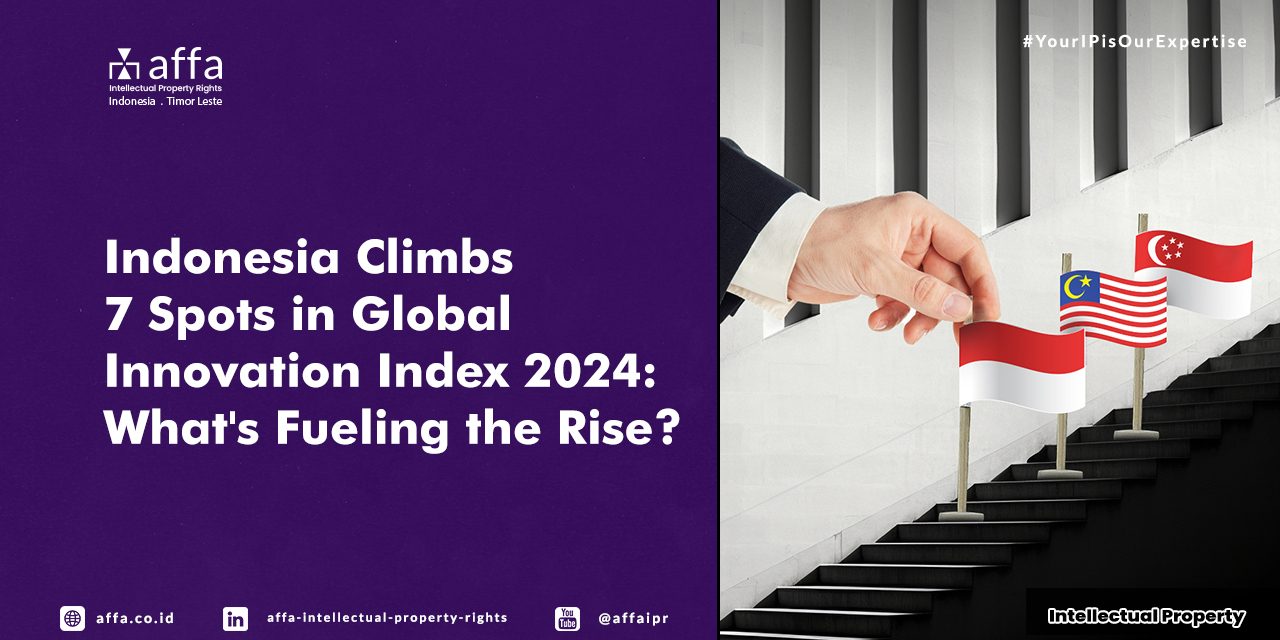The Global Innovation Index (GII) is an annual report published by the World Intellectual Property Organization (WIPO), in collaboration with Cornell University, USA, and the Institut Européen d’Administration des Affaires (INSEAD), France. This index ranks countries based on innovation capacity and performance, using more than 80 indicators covering innovation inputs (such as institutions, human resources, and infrastructure) and outputs (such as research outcomes, technology, and creative products). This index is a crucial benchmark, as innovation is a primary driver of economic development, especially in knowledge-based economies. Intellectual Property (IP) is a critical component of this innovation ecosystem.
With effective IP protection and management, countries can create new technologies, enhance competitiveness in global markets, and provide incentives for inventors and creators to continue innovating. IP ensures that innovation results are protected from easy duplication or misuse while offering economic benefits to innovators through Copyright, Patents, Trademarks, and Industrial Designs.
Rising from Rank 61 to 54
This year (2024), Indonesia has experienced a significant improvement, climbing from rank 61 in 2023 to rank 54, closely trailing the Philippines at 53. Several key factors drove this rise:
- Policy Stability for Doing Business
Measures how the government ensures a stable policy environment for business activities. This indicator is based on perceptions of policy stability measured through surveys. - Entrepreneurship Policies and Culture
Assesses policies that support entrepreneurship and a culture that encourages domestic entrepreneurial activity. This indicator reflects support for the establishment and growth of new ventures. - Finance for Startups and Scaleups
Measures the availability of financial capital for startups and business development, including access to venture capital and other financial instruments that support startup growth and business expansion. - Domestic Market Scale
Measures the domestic market size based on Gross Domestic Product (GDP) and National Income. This indicator highlights the domestic market’s potential for innovative products and services. - University-Industry R&D Collaboration
Assesses the level of research and development collaboration between universities and industries, reflecting the integration of academic and industrial sectors in generating innovation. - State of Cluster Development
Measures the level of development of industrial and technology clusters, including coordination between companies and institutions within clusters to enhance innovation and growth. - Software Spending
Measures total corporate spending on software, indicating investments in IT solutions that support operations and innovation.
However, Indonesia still lags in several indicators, including:
- Expenditure on Education
Reflects government spending on education per student, indicating the priority of education in the national budget allocation. - Government Funding per Pupil
Measures government funds allocated per student, reflecting the nation’s investment in human capital development through education. - Tertiary Inbound Mobility
Measures the number of international students enrolled in domestic higher education institutions, indicating the global attractiveness of the nation’s universities. - Firms Offering Formal Training
Reflects the percentage of companies providing formal employee training, indicating corporate investment in employee skill development. - Scientific and Technical Articles
Measures the number of scientific and technical publications, reflecting a country’s research output and innovation capacity.
These factors still place Indonesia behind other ASEAN countries like Singapore (rank 4), Malaysia (33), Thailand (41), Vietnam (44), and the Philippines (53).
A significant difference between Indonesia and the Philippines lies in the strength of innovation output. The Philippines excels in High-Tech Manufacturing, Production and Export Complexity, High-Tech Exports, ICT Services Exports, and Creative Goods Exports. Compared to Malaysia, they outperform Indonesia in the number of Graduates in Science and Engineering, University Rankings, and Domestic Credit to the Private Sector.
Indonesia still needs to work on competing with these nations, mainly when its weaknesses lie in fundamental categories such as government spending and educational budgets, particularly at the primary level. However, Indonesia’s improved investment climate, marked by the growth of startups and solid indicators for stable government policies, reflects its commitment to creating a better business environment.
Should you need further information related to innovation, Patents, or other Intellectual Property protection in Indonesia, feel free to contact us via email: [email protected].







